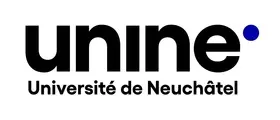
Jobs for Economics PhDs
Why are top management consulting firms increasingly hiring Economics PhDs?
Read a summary using the INOMICS AI tool
The following article first appeared in the INOMICS Handbook 2023.
Every Economics PhD student has contemplated a career outside academia at least once. There are multiple alternative options available to trained economists, and the INOMICS Salary Report shows that about 30% eventually opt for the private sector (though the true number may be higher, as INOMICS has a high proportion of academic users). In recent years, top consulting firms (such as the “Big 4”: KPMG, PwC, Deloitte, and EY) have increasingly been hiring Economics PhDs, many through specifically designed advanced degree pipelines – a trend that may surprise some.
But why are these firms seeking out economists for their consulting teams, and what benefits do economists bring to the table? I spoke with a human resources manager from one of the Big 4 firms to learn more on the matter, and to help thousands of Economics PhDs like myself know our options better.
First, it's important to reiterate what an Economics PhD entails to figure out why these students are in demand. Economics is the study of how societies allocate scarce resources to satisfy unlimited wants and needs. An Economics PhD program involves advanced coursework in microeconomics (the study of individual decision-making) and macroeconomics (the study of the economy as a whole), as well as training in statistics, econometrics (the application of statistical methods to economic data), and mathematical modeling. PhD students also typically conduct independent research, which requires them to develop analytical skills, conceptual thinking, and the ability to identify patterns and trends in large amounts of data.
Management consulting firms are known for their ability to help businesses solve complex problems and achieve their strategic objectives. Therefore, the interview process typically includes several rounds with at least one case interview; this type of on-the-spot analysis isn’t a skill that’s traditionally taught in economics courses. So why are they interested in hiring Economics PhDs? Here are a few key reasons:
Strong analytical skills
Economics PhDs are trained to analyze data and identify patterns in the economy and society, discovering and testing trends that may not be immediately apparent. They are also skilled in developing hypotheses and testing them using statistical models.
Economics PhDs are trained to make sure no assumption is left untested, and no conclusion is reached unproved. This makes them valuable assets to consulting teams, who often work with large amounts of information and data, and need to make sense of it quickly in order to provide actionable insights to clients.

Image credit: our-team on Freepik.de
Familiarity with economic theory
Thanks to their rigorous training, Economics PhDs deeply understand economic theory. It provides them with a framework for understanding how different factors may impact a client’s business on both the microeconomic (individuals and firms) and macroeconomic (industry and economy) levels.
This theoretical background can be especially valuable when working with clients in industries that are undergoing significant structural changes or facing new challenges, such as disruptive technology or geopolitical tensions. Someone who studied economics would be able to identify these changes and predict future impact on business.
Data science skills
PhDs with a degree in Economics gain diverse data science skills in graduate school, including quantitative modeling and data visualization skills. They are trained to solve problems while ensuring that the results generated from statistical models are valid and reliable.
Articulating methodology (‘Why should we employ this model?’) and conducting a series of robustness checks (‘Can we trust the results?’) are standard tools used by Economics PhD students when doing economic analysis. These skills can be especially valuable when working with clients who need data-driven insights to make key business decisions.
Ability to conduct rigorous research
Doctorate programs in economics typically require students to conduct independent research, which takes several years to complete. Economics PhD students design and manage their own research projects (or parts of them) as well as their own personal time and resources to keep the work going.
This is a crucial skill for a consultant, as the nature of their job dictates independent work and the ability to multitask between projects. Economics PhD graduates come already prepared for this challenge.
Strong communication skills
Effective communication is key in consulting work, as consultants need to be able to clearly explain complex concepts and findings to clients who may not have a background in economics. Economics PhDs are often skilled communicators, as they are used to presenting their research to both academic audiences and non-experts during graduate studies.
Breadth of knowledge
While Economics PhDs are often experts in their particular field, they also have broad knowledge of other areas of economics, and related fields like finance and statistics. This breadth of knowledge can be valuable when working with clients who operate in diverse industries or who face complex challenges that require a multidisciplinary approach.
Last but not least, corporate clients like working with smart people, and having a PhD on the team can be a big boost to credibility. Several qualities set consultants with a PhD degree in Economics apart: rigorous field knowledge that Economics PhD students acquire during their training and through their independent research, scientific integrity, global outlook, and a curious mind that is on a constant search for an intellectual challenge.
Seeking a consulting job as an Economics PhD
Given these benefits, it's not surprising that consulting firms are increasingly seeking out Economics PhDs for their teams. In fact, some firms have even started recruiting directly from PhD programs, offering students the opportunity to transition their economics career from academia to consulting.
If you’re coming from an economics PhD program and interested in this type of position, be sure to highlight these skills on your resume. The interview process for consulting positions typically includes several rounds with at least one case interview, where you will be put on the spot to solve one or more hypothetical business challenges. There are numerous books and online resources to help prepare for these specifically.
As businesses face increasingly complex challenges, the need for data-driven insights and rigorous analysis will only continue to grow. In that sense, Economics PhDs bring unique skills and expertise to the table. Be sure to fully consider your employment options, and consider whether a consulting firm hiring economics PhDs could be the right place for you.
The above article first appeared in the INOMICS Handbook 2023, which you can download on our site.
Header image credit: Drazen Zigic on Freepik.de.
-
- Postdoc Job
- (Remote)
- Posted 2 weeks ago
Vacancy for a Postdoctoral fellow
At University of Ghent in Gent, Belgien
-
- Professional Training Course, Supplementary Course, Online Course
- (Online)
- Posted 2 weeks ago
Maximising the Potential of Stata’s new Python Capabilities - Live Online Course
Starts 9 Apr at TStat Training
-
- Postdoc Job
- Posted 1 week ago
Postdoctoral Researcher (all genders welcome)
At Georg-August-Universität Göttingen in Deutschland













